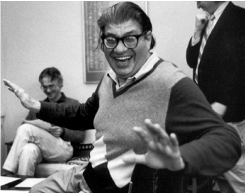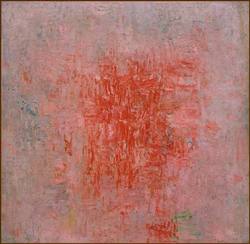 I came to Feldman by way of academic research on his attraction to painting. Few composers could probably match Feldman’s enthusiasm for visual art. He was a huge supporter of abstract expressionism, a NYC group of painters that took the artistic world by storm in the mid-twentieth century. Their artistic values in individuality, experimentation, and non-traditional aesthetics aligned with Feldman who was introduced to several painters by John Cage. To Feldman, painting wasn’t only a source of fascination, it was an incredible inspiration behind his maturing musical creations. Feldman desired to emulate painting and painters in his compositions and in his own compositional processes. It was emulation to such an extent that Feldman would refer to his compositions as not just as music, but part painting. (Somewhere he believed between painting and music.) Reading though collections of his essays, lectures, an interviews, his approach to composition appeared in in my research. The more I read, the more I felt Feldman had been a composition teacher of mine; he captivated me with his approach to music. I love the way Feldman referred to form and technique as strategy. Strategy, as if composing was a game or puzzle waiting to be solved. Composition as game surely aligns with Feldman’s core belief in experimentation. Both games and experimentation require risk taking, a possibility of failure, and the development of creative methods to reach greater objectives. I’m loving Feldman’s viewpoint because he didn’t stick to the ages-old framing of composition as a meticulous pursuit of perfection. Individuality and exploration take greater value. As someone who has often struggled with perfectionism, I find this point to be a helpful reminder. Philip Guston - Zone c. 1953
Philip Guston was one of the major painters of abstract expressionism and Feldman's closest friend. |
Archives
July 2023
|

